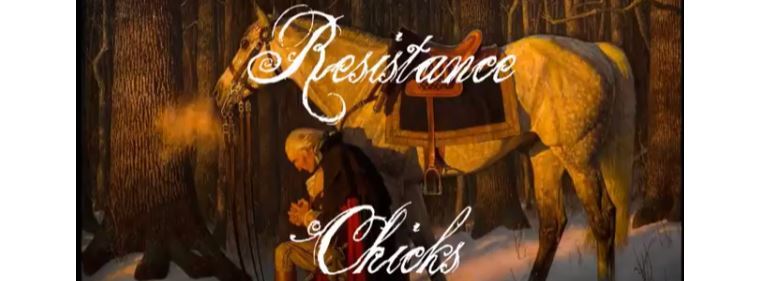
- Web Page
- <a rel="me" resistancechicks.com
Hey y'all, Leah and Michelle here! We're just a couple of sisters who own an urban farm in Ohio. We hope to offer you REAL, relevant news, with maybe a few laughs on the side. We want to empower you, the Resistance, with tools to stand up against tyranny from all sides. As we always say, "we don't lean to the Right and we don't lean to the Left... we lean on the Word of God." So everything you hear from us will be filtered through that. We stand for a righteous America, the one our Founding Fath
1.) PG here, March 29, 2025, Day 46 of 100 of John Locke's "Second Treatise of Government and A Letter Concerning Toleration," published anonymously in 1689. Chapter 8, Of "The Beginnings Of Political Societies," Section 98, 99, and 100, pages 45 and 46
In 1689 John Locke is writing about a Perfect Government. Ideal. In sect. 100 he says this is impossible. There has never been such a government known in history. America was born a more “perfect union” 1776.
John is teaching that unity is impossible, yet we have the unanimous Declaration of Independence less than a year later from John Locke's teachings on government. { The "Unanimous Declaration of the Thirteen United States of America," formally known as the Declaration of Independence, was adopted by the Second Continental Congress on July 4, 1776, declaring the thirteen British colonies as independent states, no longer subject to British rule. }
PG here 2.) Sect 99.. to unite into one political society, which is all the compact that is, or needs be, between the individuals, that enter into, or make up a commonwealth. And thus that, which begins and actually constitutes any political society, is nothing but the consent of any number of freemen capable of a majority to unite and incorporate into such a society. And this is that, and that only, which did, or could give beginning to any lawful government in the world.
In section 98, John Locke mentions a play, CATO; the writer's plays are political: CATO Cato, a Tragedy is a play written by Joseph Addison in 1712 and first performed on 14 April 1713. It is based on the events of the last days of Marcus Porcius Cato Uticensis (better known as Cato the Younger) (95–46 BC), a Stoic whose deeds, rhetoric and "resistance to the tyranny" of Julius Caesar made him an "icon of republicanism, virtue, and liberty." PG 3.) Addison's play deals with many themes such as individual liberty versus government tyranny, republicanism versus monarchism, logic versus emotion, and Cato's personal struggle to hold to his beliefs in the face of death.
The play is explaining "the perfect reasons for government." Republics are resistance to dictators, tyranny, and domineering groups of men who rule without the consent of the people. John Locke is telling us without this perfect union, this play never opened, or as soon as it did, it shut down again because it had no effect on those watching. ***Cato the play came to the stage and then walked off stage, like it never happened.
PG 4.) Section 98......: but such a consent is next to impossible ever to be had, if we consider the infirmities of health, and avocations of business, which in a number, though much less than that of a commonwealth,
will necessarily keep many away from the public assembly. To which if we add the variety of opinions, and contrariety of interests, which unavoidably happen in all collections of men, the coming into society upon such terms would be only like Cato's coming into the theatre, only to go out again. The Latin phrase was originally written "tantum et exiret." Only to go out again.
P.S. means “written after.” In the mid-1600s, John Locke was friends with William Penn and even got him out of jail in England. William Penn and the Quakers from the 1600s are the example John is writing from. He heard what they were doing and explained the governments they were forming. Political, civil and religious "Societies" he calls them.








